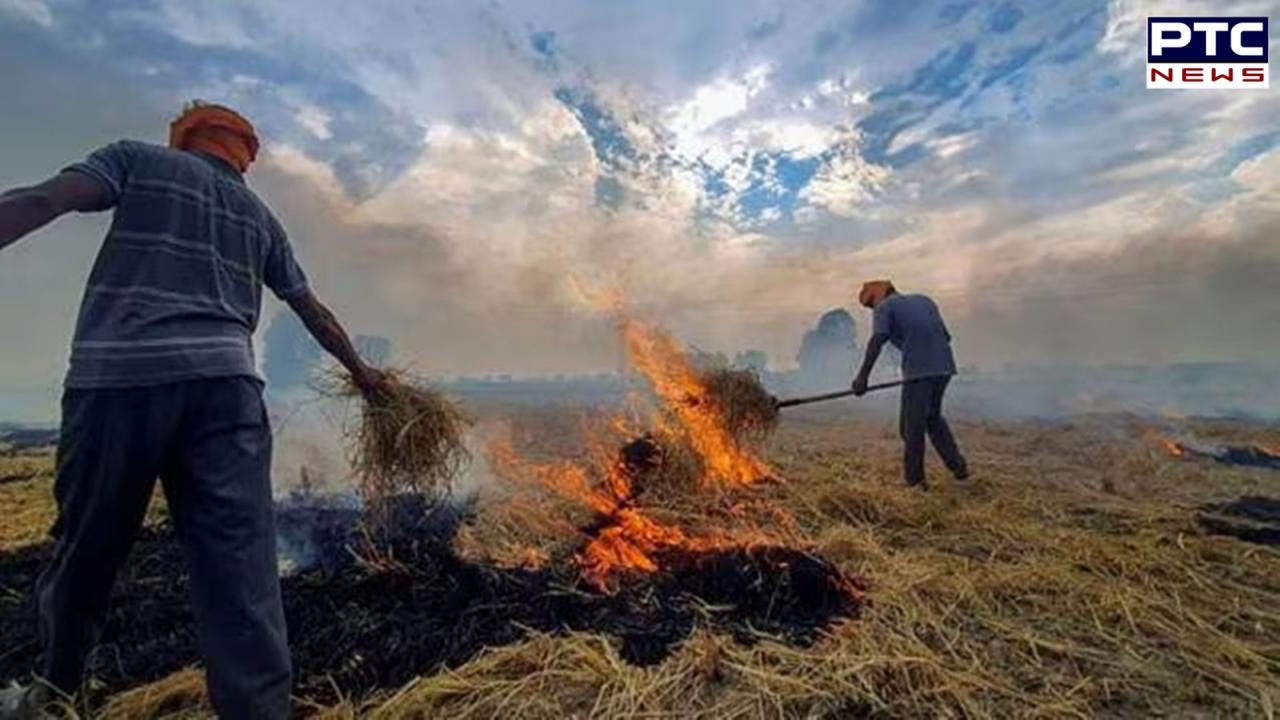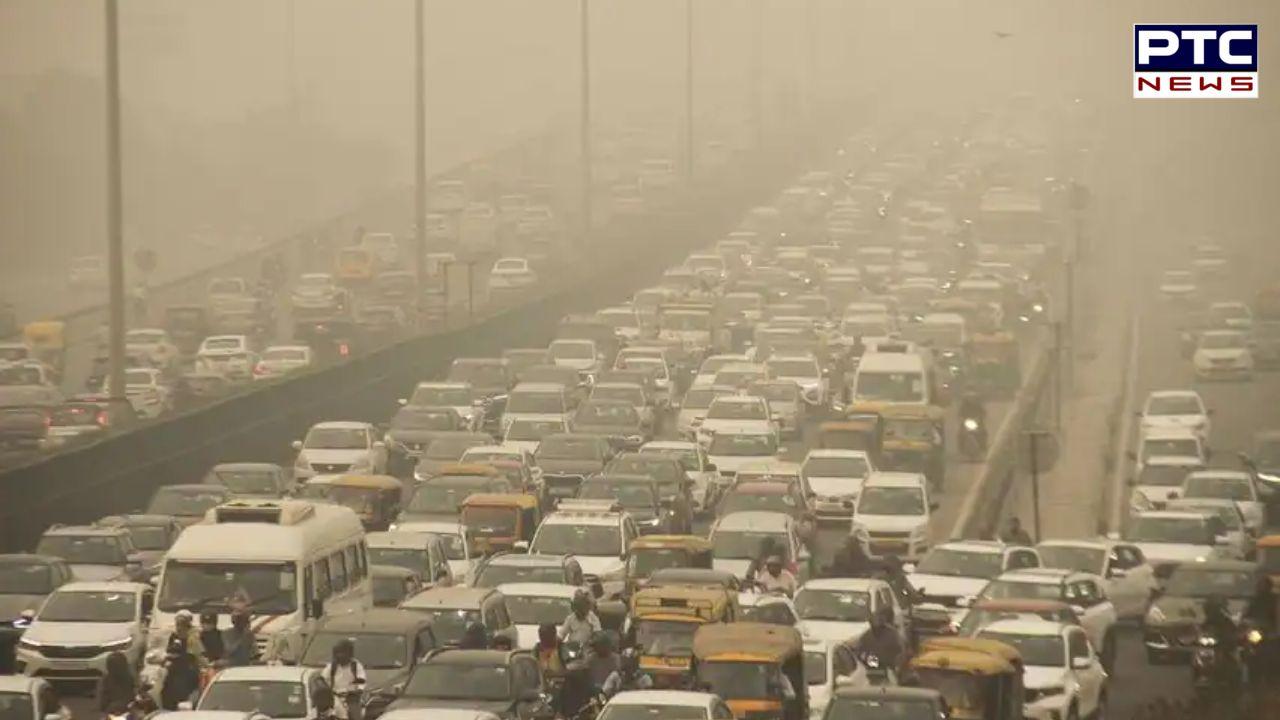Supreme Court criticises centre, Haryana, and Punjab over rising Delhi air pollution
The Commission for Air Quality Management (CAQM) is criticized by SC for failing to carry out its directive to put an end to stubble burning.

PTC News Desk: The Supreme Court of India on Thursday strongly criticised the state governments of Punjab and Haryana for imposing only minimal penalties on farmers responsible for burning paddy stubble, a major contributor to Delhi’s worsening air quality. According to a report by PTI, the Court expressed its displeasure over the lax enforcement of measures aimed at curbing stubble burning, which has been a persistent issue around the national capital.
The Court also reprimanded the Commission for Air Quality Management (CAQM) for failing to take effective action against stubble burning in Delhi's neighbouring states, despite clear directions from the Court to address the issue. It noted that the CAQM had made little to no effort to implement measures to prevent stubble burning, which continues to be a significant factor in Delhi’s air pollution crisis.

A bench comprising Justice Abhay S. Oka and Justice Augustine George Masih highlighted that the CAQM, which was formed to address air quality management in Delhi and surrounding areas, had not only failed to launch a single prosecution related to stubble burning but also did not discuss key issues at its recent meetings.
The bench pointed out that only five out of eleven members attended the CAQM meeting held on August 29, 2023, where discussions on air pollution and the Supreme Court’s directions were notably absent.
The Court was reviewing a compliance report filed by the CAQM, which, it noted, reflected the Commission's failure to take substantial steps against violators. As a result, the Court has now ordered the Centre and the CAQM to file affidavits within one week, providing explanations on their lack of action. The case has been scheduled for further hearing on October 16.
During a prior hearing on September 27, the Supreme Court had similarly expressed frustration over the CAQM's failure to address air pollution in the National Capital Region (NCR). The bench observed that there was "total non-compliance" of the provisions laid out under the Commission for Air Quality Management in National Capital Region and Adjoining Areas Act, 2021. The Court questioned the Commission’s lack of enforcement, asking if any meaningful directives had been issued to stakeholders involved in mitigating pollution.
"The Commission needs to be more proactive. While steps have been taken, these efforts have not effectively translated into tangible results in reducing pollution levels," the bench observed. It also urged the CAQM to ensure that equipment provided by the Centre to farmers for managing paddy stubble, such as machines that reduce the need for burning, is actively used on the ground.
Also Read: Fake SBI branch in Chhattisgarh dupes villagers and unemployed of lakhs
The Central Government presented the steps it had taken to address stubble burning, including issuing advisories and guidelines to states in the NCR region. However, the Court remained unconvinced, responding sharply, "It is all in the air, nothing has been shown regarding what has been done in the National Capital Region states."
The Court's criticism underscored the gap between policy formulation and actual implementation on the ground, particularly in terms of preventing farmers from resorting to stubble burning.
The Court also expressed concern over the inadequate staffing of state pollution control boards, which play a crucial role in tackling air pollution and managing stubble burning, especially during the winter months when pollution levels rise significantly. The bench noted that without sufficient staff, the state agencies responsible for enforcing pollution control laws would be ineffective.
The Court further directed that the sub-committee under the CAQM, tasked with enforcement and safeguarding pollution measures, must have adequate representation from the pollution control boards of Delhi, Punjab, Haryana, Rajasthan, and Uttar Pradesh. These five NCR states were instructed to urgently fill the vacancies in their pollution control boards, with a deadline of April 30, 2025.
As the Supreme Court continues to press for concrete actions to curb air pollution in Delhi, the Centre and CAQM are expected to submit their affidavits by the next hearing on October 16. This case highlights the ongoing struggle to implement effective measures against stubble burning and tackle air pollution, despite clear legal frameworks being in place.
The Court's pointed criticism has placed increased pressure on both state governments and the central authorities to take more aggressive steps in addressing this annual environmental crisis.
Also Read: Telangana minister apologises to KTR for linking Samantha and Naga Chaitanya's divorce
